About Hillcrest Children and Family Center
The Hillcrest Children and Family Center is a treatment facility in Washington, D.C. that offers a variety of services for those struggling with addiction. These services include alcohol rehab, dual diagnosis treatment, opioid addiction treatment, young adult rehab, adult program, elderly rehab, men’s rehab, women’s rehab, outpatient rehab, detox treatment, aftercare support, cognitive behavioral therapy, family therapy, group therapy, individual therapy, and trauma therapy. The staff at the Hillcrest Children and Family Center is dedicated to helping those in need of treatment get the help they need to overcome their addiction and start living a healthy, sober life. If you or someone you know is struggling with addiction, please contact the Hillcrest Children and Family Center to learn more about their treatment services.
Addiction Treatment Programs
Alcohol Rehab
If you’re looking to break free of dependence on alcohol, a high-quality alcohol rehab in District of Columbia can help. The rehab program may use multiple approaches, including nutrition, psychology, holistic methods, and support groups. These tools help you build a substance-free lifestyle and move into long-term recovery.
Dual Diagnosis
During dual diagnosis treatment in District of Columbia, you’ll receive integrated care for your mental health and substance use concerns, helping you establish long-term recovery.In addition to typical detox, inpatient treatment, and outpatient care, a dual diagnosis program may include medication management, additional counseling, and classes on healthy coping and other important life skills.
Opioid Addiction
A high-quality rehab in District of Columbia helps people gain the skills they need to overcome opioid addiction and maintain long-term sobriety. Opioid treatment programs address the mental, emotional, and relational issues that may contribute to addiction. You’ll learn to build a new support network that supports your long-term sobriety.
Young Adult Rehab
Young adult rehab programs in the District of Columbia can help young people make healthier life choices and avoid common mistakes. In addition to typical detox, inpatient treatment, and outpatient care, a young adult program may also teach clients about living independently, budgeting, having healthy relationships, parenting, and more.
Adult Program
When people join an adult program in the District of Columbia, they learn about topics such as employment and raising a family while receiving treatment. In addition to typical detox, inpatient treatment, and outpatient care, an adult program may also teach clients about building a career, saving for retirement, parenting, and more.
Men's Rehab
Men’s rehabs in District of Columbia address a wide range of substance use issues while also helping clients with gender-specific issues. In addition to typical detox, inpatient treatment, and outpatient care, a men’s program may also teach clients about having healthy relationships, fatherhood, building a career, and more.
Women's Rehab
A women’s rehab in District of Columbia helps clients build same-gender friendships, overcome substance use, and learn new life skills. In addition to typical detox, inpatient treatment, and outpatient care, a women’s program may also teach clients about motherhood, building a career, being safe in relationships, and more.
Senior Rehab
Insurance Coverage
Medicaid
For those who qualify, one option for paying for rehab in the District of Columbia is using Medicaid. Using Medicaid keeps your costs, if there are any, very low. You can access any type of care, including detox, inpatient, and outpatient.
Financial aid
One option for paying for rehab in the District of Columbia, if you’re struggling, is using financial aid programs. You can pay for detox, inpatient treatment, or outpatient care using scholarships or grants from the treatment center or from local organizations.
Financing available
In the District of Columbia, using financing options when they are available is one of your options when it comes to paying for rehab. Choosing to finance detox, inpatient treatment, or outpatient care can allow you to get the help you need without having the pay the full amount up front. Ask about payment plans, scholarships, grants, or even medical loans.
Self-pay options
In the District of Columbia, you can pay for addiction treatment using self-pay. Self-pay involves writing a check, getting a medical loan, or having money sent electronically to the clinic. Be sure to check on the fee structure, which may depend on the level of care.
Military insurance
If you’re looking for ways to pay for rehab in the District of Columbia, consider using military insurance if you’re a military member or veteran. Plans vary, so be sure to contact your insurance company to find out coverage details and what copayments or deductibles you might be responsible for.
Medicare
In the District of Columbia, Medicare is one of your options when it comes to paying for rehab. Medicare plans may vary, so be sure to find out coverage details and what copayments or deductibles you might be responsible for.
Levels of Care
- 1
Detox Treatment
When you decide to build a new life, the first step is getting rid of the substances in your system through detox in District of Columbia. After approximately a week of detox, during which you’ll receive medical attention for withdrawal symptoms, you’ll be ready to transfer to inpatient or outpatient rehab treatment to begin your new life.
- 2
Outpatient Rehab
During outpatient treatment in District of Columbia, each client attends multiple hours of care per week while living independently outside of treatment. Outpatient treatment is less intensive than inpatient care and may include both counseling and attendance at a 12-step or other recovery support group.
- 3
Aftercare Support
Accessing aftercare in District of Columbia is a way to reduce the risk of relapse, helping you establish long-term recovery. Aftercare services help provide stability as you establish your new life and may include help with employment, housing, sober activities, making friends, and finding long-term support.
Therapies
Cognitive Behavior Therapy
Not everything we think is true or helpful. Cognitive behavioral therapy in District of Columbia teaches you to challenge distorted thinking so you can see things more clearly and choose healthier responses. Your underlying core beliefs can cause you to automatically react in certain ways. CBT helps you identify these immediate responses, challenge them, and choose a healthier response.
Family Therapy
During family therapy in District of Columbia, clients and their loved ones can address dysfunctional relationships, resentments, and conflicts in order to create healthier relationships that support the client’s recovery. Family therapy is a normal part of evidence-based treatment programs and may be a part of inpatient treatment, outpatient care, or both. Topics include addressing past events, overcoming codependence and enablement, and building healthy, supportive relationships with each other.
Group Therapy
During group therapy in District of Columbia, each client has a chance to share their unique experiences and feelings about the discussion topic. This creates accountability and support. Group therapy can be part of detox, inpatient treatment, and outpatient care. It’s generally combined with individual counseling, activities, life-skills classes, and relapse prevention planning.
Individual Therapy
You’re not alone as you work through addiction in District of Columbia. Individual therapy gives you a professional who’s on your side to help you build a new life. A professional therapist can help you identify substance use triggers, reshape your thinking about specific topics, and address prior experiences and trauma that impact your substance use habits.
Trauma Therapy
During trauma-informed therapy in District of Columbia, you’ll be given the tools you need to manage your emotions and understand what happened in a healthier way. Trauma-informed therapy is one element of rehab treatment, which also includes activities, peer support, individual and group counseling, relapse prevention, and more. Together, all these methods support you in establishing long-term recovery.
Accreditations
Location
Contact Hillcrest Children and Family Center
Top Drug Rehab Centers in District of Columbia
-
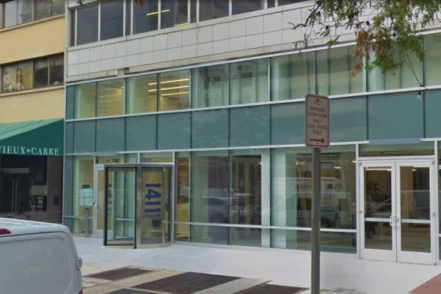 District of Columbia
District of ColumbiaKolmac Integrated Behavioral Health
1025 Vermont Ave NW Suite 305 Washington, DC 20005
-
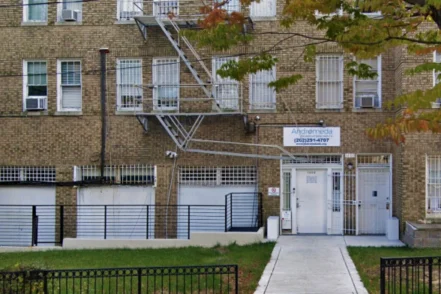 District of Columbia
District of ColumbiaAndromeda Transcultural Health
1400 Decatur Street NW Washington, District of Columbia 20011
-
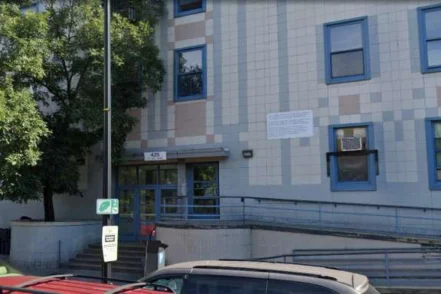 District of Columbia
District of ColumbiaClean and Sober Streets
2 North 425 2nd Street Northwest Washington, District of Columbia 20001
-
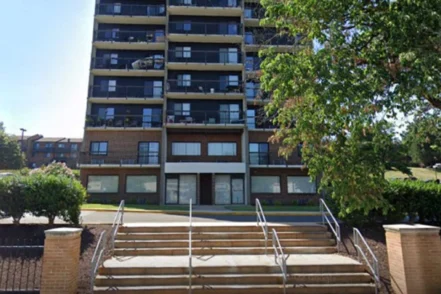 District of Columbia
District of ColumbiaLife Stride
3005 Bladensburg Road Northeast Washington, District of Columbia 20018
-
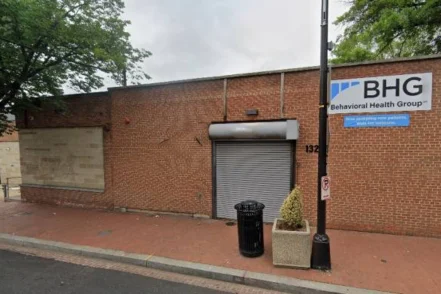 District of Columbia
District of ColumbiaBehavioral Health Group BHG
1320 Good Hope Road SE Washington, District of Columbia 20020
-
 District of Columbia
District of ColumbiaUPO Comprehensive Treatment Center
1900 Massachusetts Avenue SE, Building 13 Washington, District of Columbia 20003
-
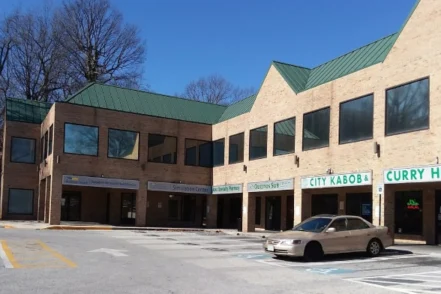 District of Columbia
District of ColumbiaMedStar Washington Hospital Center Michigan Avenue
216 Michigan Ave., NE Washington, District of Columbia 20017
-
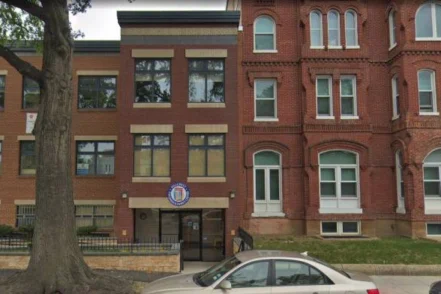 District of Columbia
District of ColumbiaHillcrest Children and Family Center
915 Rhode Island Avenue Northwest Washington, District of Columbia 20001
-
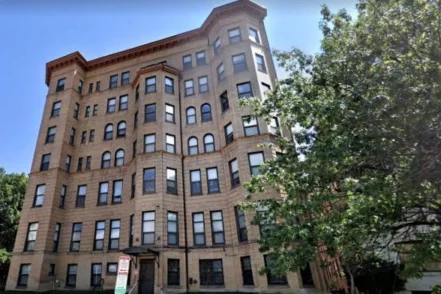 District of Columbia
District of ColumbiaSamaritan Inns
2523 14th Street NW Washington, District of Columbia 20009
-
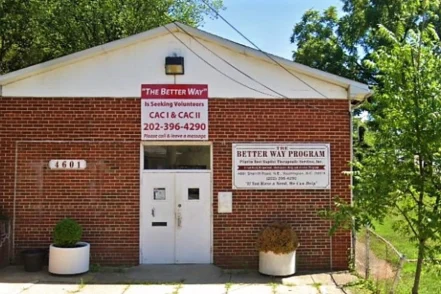 District of Columbia
District of ColumbiaBetter Way Program
4601 Sheriff Road NE Washington, District of Columbia 20019
